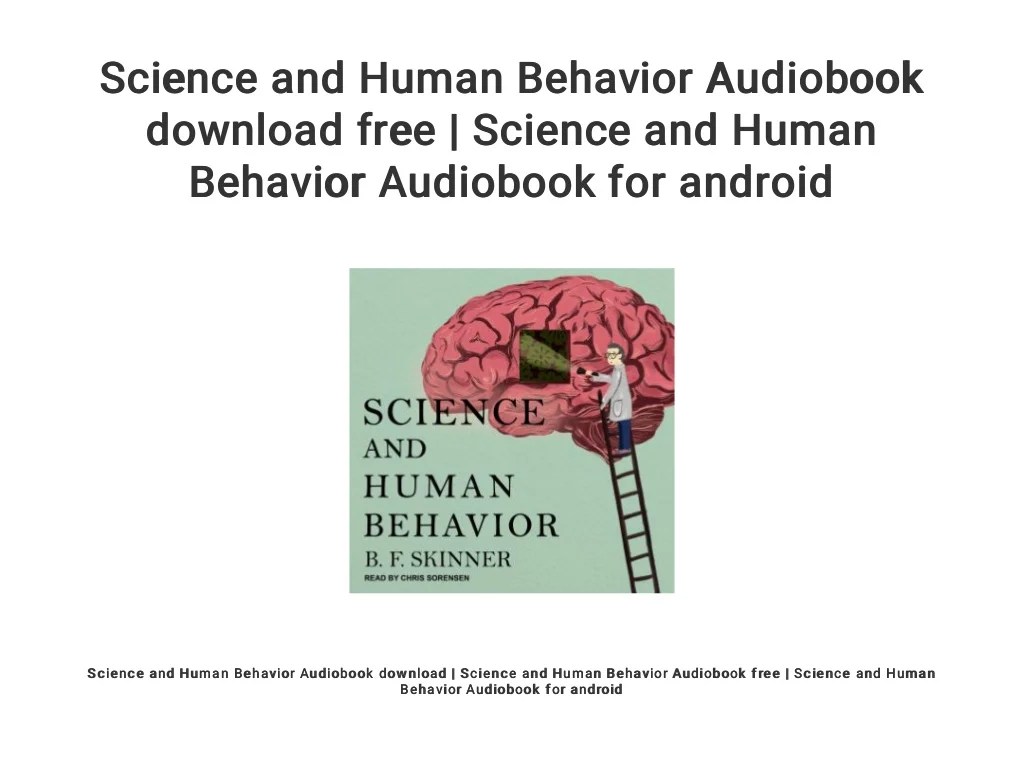The science of human behavior rbt – The science of human behavior, also known as behavior analysis, unveils the intricate tapestry of human actions, motivations, and experiences. This captivating field delves into the biological, social, cognitive, and emotional underpinnings that shape our behaviors, providing invaluable insights into the complexities of human nature.
Throughout history, the study of human behavior has evolved from philosophical musings to rigorous scientific inquiry. Today, researchers employ a diverse array of methods, from controlled experiments to naturalistic observations, to unravel the mysteries of human behavior. This comprehensive guide will delve into the foundations, methodologies, and applications of this fascinating science, offering a deeper understanding of ourselves and the world around us.
Define the Science of Human Behavior

The science of human behavior is a broad field that encompasses the study of the thoughts, feelings, and actions of human beings. It seeks to understand the underlying mechanisms that drive human behavior and to develop theories that can explain and predict how people will behave in different situations.
The scope of the science of human behavior is vast, encompassing everything from the study of individual differences in personality and intelligence to the investigation of social and cultural factors that influence behavior. The field draws on a variety of disciplines, including psychology, sociology, anthropology, and neuroscience, to develop a comprehensive understanding of human behavior.
Historical Development of the Field
The science of human behavior has its roots in the early days of philosophy, when thinkers such as Aristotle and Plato began to speculate about the nature of human nature. However, it was not until the 19th century that the field began to emerge as a distinct discipline, with the development of experimental psychology by Wilhelm Wundt and others.
In the 20th century, the science of human behavior continued to grow rapidly, with the development of new theories and research methods. Today, the field is more diverse than ever before, with researchers working in a wide range of areas, from cognitive psychology to social psychology to developmental psychology.
Key Theories and Concepts, The science of human behavior rbt
The science of human behavior is based on a number of key theories and concepts, including:
- Behaviorism: The theory that behavior is learned through conditioning and that it can be changed through reinforcement and punishment.
- Cognitive psychology: The theory that the mind is an active processor of information and that cognition plays a central role in behavior.
- Humanistic psychology: The theory that humans are fundamentally good and that they have the potential for growth and self-actualization.
- Social psychology: The theory that social factors play a significant role in shaping behavior.
Research Methods in the Science of Human Behavior

The science of human behavior relies on a variety of research methods to collect data and test hypotheses. These methods include:
- Observational methods: These methods involve observing and recording behavior in natural settings or in the laboratory.
- Experimental methods: These methods involve manipulating independent variables to determine their effects on dependent variables.
- Correlational methods: These methods involve measuring the relationship between two or more variables to determine whether they are related.
- Case studies: These methods involve studying a single individual or group in depth.
Each of these methods has its own strengths and weaknesses. Observational methods are useful for studying behavior in natural settings, but they can be difficult to control. Experimental methods are useful for testing hypotheses, but they can be artificial and may not generalize to real-world settings.
Correlational methods are useful for exploring relationships between variables, but they cannot establish causation. Case studies are useful for studying individuals or groups in depth, but they can be difficult to generalize to other populations.
Researchers typically use a combination of research methods to collect data and test hypotheses. This allows them to triangulate their findings and to get a more complete picture of the phenomenon they are studying.
Biological Bases of Human Behavior

The biological bases of human behavior are complex and involve a variety of factors, including:
- Genetics: Genes play a role in shaping our personality, intelligence, and other traits.
- The brain and nervous system: The brain and nervous system control our thoughts, feelings, and actions.
- Hormones: Hormones are chemical messengers that regulate a variety of bodily functions, including behavior.
The biological bases of human behavior are still not fully understood, but research in this area is growing rapidly. This research is helping us to better understand the complex relationship between our biology and our behavior.
FAQ: The Science Of Human Behavior Rbt
What is the primary focus of the science of human behavior?
The science of human behavior primarily focuses on understanding the causes and consequences of human actions, motivations, and thoughts.
How do researchers study human behavior?
Researchers use a variety of methods to study human behavior, including experiments, observations, interviews, and surveys.
What are some of the key theories in the science of human behavior?
Some of the key theories in the science of human behavior include behaviorism, social cognitive theory, and psychoanalysis.
How can the science of human behavior be applied in real-world settings?
The science of human behavior can be applied in various settings, such as clinical psychology, education, and organizational management, to improve human well-being and productivity.